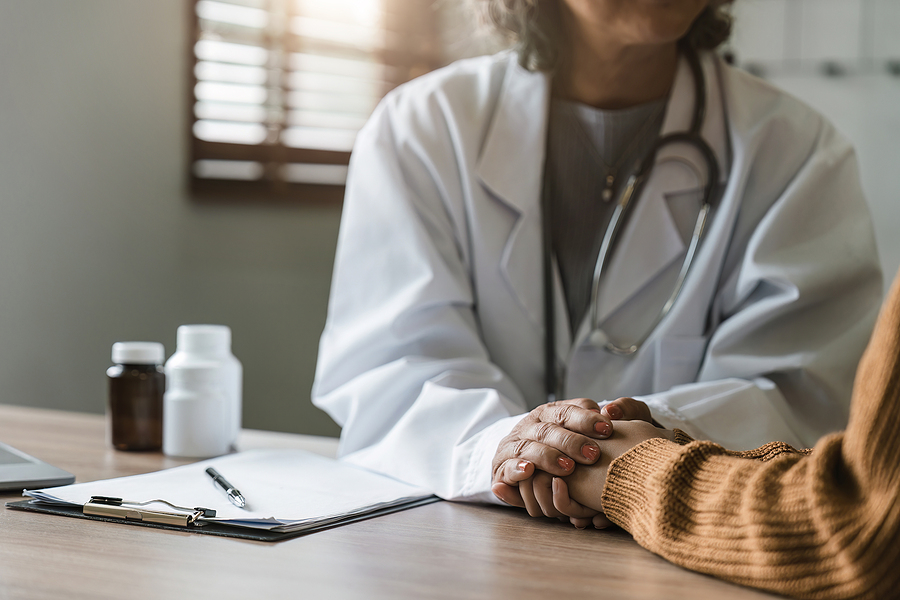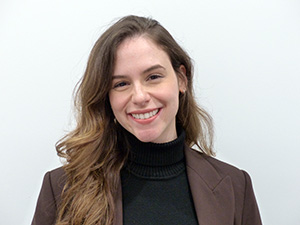The Public Trust: A Former ISPS Fellow Works to Advance Health Policy

A first-generation college student whose family immigrated to Florida from Cuba, Rachel Diaz has served as her parents’ health care navigator since she was a child.
“My parents don’t speak English well enough to defend themselves when receiving excessive bills following medical emergencies,” she said, recalling a rough stretch of health problems they encountered when she was a junior at Yale. “They were being billed twice for the same thing — by the insurance company and the hospital. Why are we getting the same $2,000 bill?”
While taking an undergraduate health economics course, Diaz, Yale College Class of ’20, gained some of the knowledge she needed to help her parents avoid the type of unnecessary medical debt and surprise medical bills that can burden and bankrupt families. And after successfully applying to the Institution for Social and Policy Studies (ISPS) Dahl Research Scholar Program, Diaz worked on a study to improve the industry for everyone with her mentor, Zack Cooper, associate professor of public health and economics and an ISPS faculty fellow.
“Thankfully my parents are both fine,” she said. “But before I met Zack, I felt alone. I didn’t feel seen. I didn’t know this was such a common problem.”
Cooper, associate director of the Tobin Center for Economic Policy, collaborated with Fiona Scott Morton, Theodore Nierenberg Professor of Economics and an ISPS faculty fellow, on a 2016 study that found one in five U.S. patients were treated by an out-of-network doctor at an in-network hospital, resulting in “surprise bills” that could total hundreds or thousands of dollars. Subsequent papers and consultations with lawmakers led to a federal law, passed in 2020, that prevents out-of-network physicians working from in-network hospitals from collecting outside payments from patients.
As a Dahl scholar, Diaz delved into a similar topic. She found that among the hospitals she studied, those acquired by private equity firms were more likely to submit insurance reimbursement claims with codes for more serious and therefore more expensive conditions or procedures.
“When hospitals merge, it can have detrimental effects,” Diaz said, noting her work built upon earlier studies to focus on specific hospitals over a specific period. “People can’t pay bills, and this can lead to all sorts of other consequences.”
Before attending Yale, Diaz served as an aide for Miami-Dade County’s deputy mayor, conducting research in preparation of for county commissioners’ meetings. She earned her associate of arts degree from The Honors College at Miami Dade College before transferring to Yale and earning a B.A. in economics.
After graduation, Diaz worked for two years as a project coordinator for the Tobin Center under the supervision of Executive Director David Wilkinson, facilitating collaborations among Yale research teams, academics at other institutions, data analysts, and local, state, and national policymakers. She is now serving as a research assistant at the Tobin Center while pursuing a master’s degree in public health from the Yale School of Public Health.
“Rachel is a force,” Cooper said. “She’s brilliant and driven, but what really sets her apart is how personally she takes her work. And how much she is motivated to make the world around her better.”
Diaz is also serving as a part-time graduate research intern with the Community Alliance for Research and Engagement (CARE), helping to evaluate the effectiveness of programs aiming to instill trust between health workers and community members.
“These are health programs that employ people from the community, who know their neighbors’ values and the influential key players,” Diaz said. “Community health workers are incredibly helpful in an emergency response, when people want to speak to someone who grew up in their community, someone who lives there.”
Diaz found this approach particularly vital during the pandemic, when some of the lowest initial rates of testing and vaccination could be found in Hispanic communities.
“If you don’t trust experts, who can you trust?” she said. “Either your physician or someone in your community who wouldn’t do you wrong.”
In addition, Diaz said her time at ISPS and the Tobin Center has taught her the value of assembling interdisciplinary research teams.
“Especially in public health, just getting that hands-on experience is so important for students,” she said. “Learning to speak to people of different backgrounds — academic or cultural. How everybody plays a part in a public health response. It’s not something you can get in a classroom.”
Diaz expressed deep gratitude for how Cooper stressed achieving practical results — for herself and the public.
“He told me that my work was important and asked how he could help me make an impact,” she said. “But he also said I was important. He and Dave were not afraid to push me and make me feel uncomfortable. They knew I was qualified before I did. Having those champions, professionally and personally, is so incredibly essential for growth.”
Once she has completed her master’s degree, Diaz wants to find a position in health care at the intersection of public and private partnerships.
“I want to help mend the public’s trust in public health responses,” she said. “Whatever gets us there is where I want to be.”